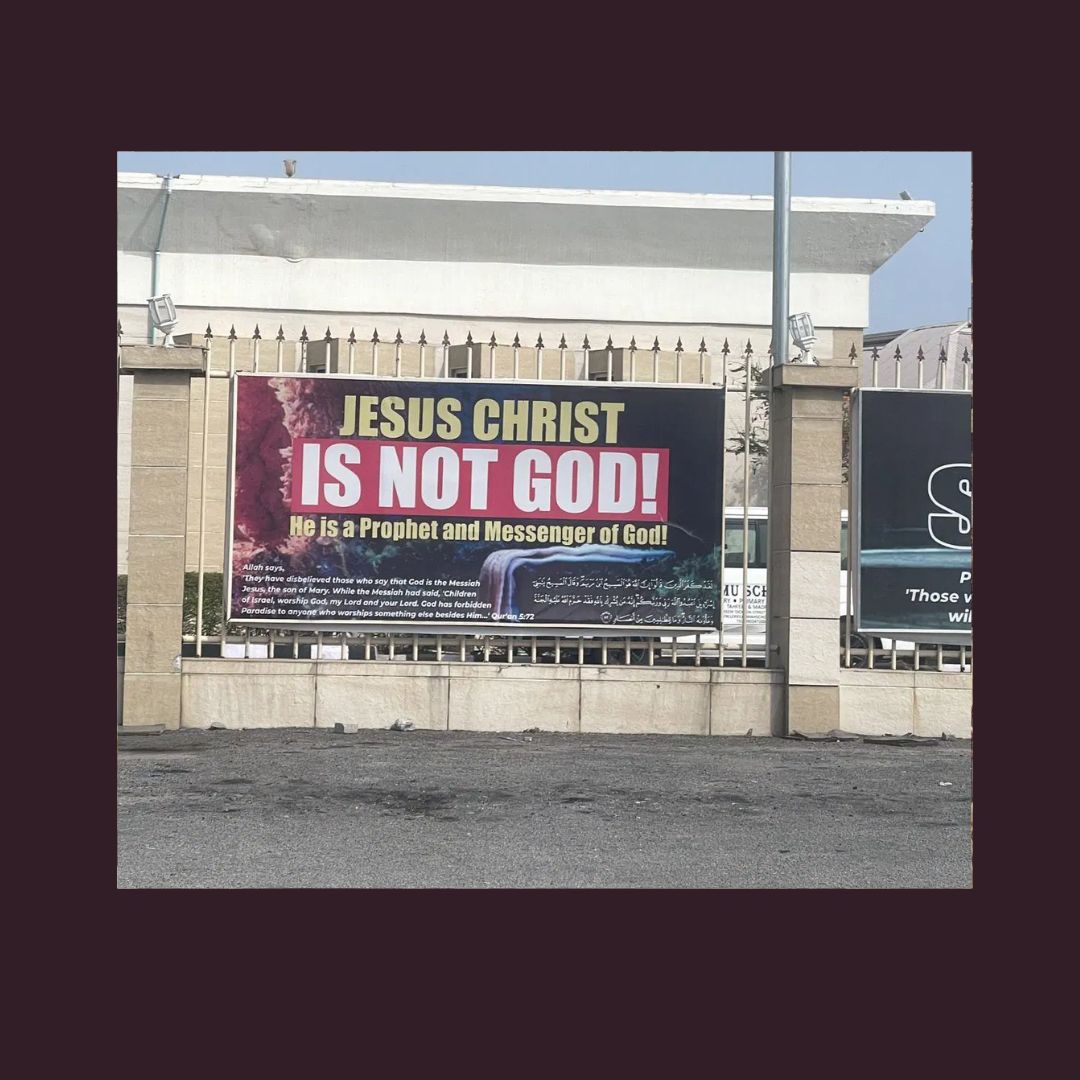It’s not every day you see a banner like that displayed in a public space in Nigeria. For many, the message is not just theological—it feels personal. Christians, especially, are outraged, seeing the banner as a direct challenge to the foundational beliefs of their faith. Actress Wumi Tuase tweeted, “I don’t like to get into religious conversations, but I found it very weird that Lekki Central Mosque has this in front of their gate.”
Others, however, argue that it simply reflects Islamic doctrine, where Jesus is seen as a prophet and not divine. X user @Dannymasterp chimed in, saying, “Jesus is not God. Of course, the evidence is very clear. The church celebrates his personality more than his teachings.”
Jesus is not God: Is this about religion or respect?
However, Medialord.ng inquiry shows some social media users focus less on the theological debate and more on the potential conflict. @shinoremy wrote, “The issue with the banner isn’t whether it’s true or not. It’s about the potential to incite religious conflicts. We need to be better as a people and just respect ourselves.”
In a country as religiously diverse as Nigeria, where tensions between Muslims and Christians have historically flared, public statements like this can be a powder keg. A question many Nigerians are asking is: Does this banner respect the broader societal need for peace, or is it a deliberate provocation?
This isn’t the first time a religious statement in public space has caused a stir in Nigeria. Just last year, a Christian group in Lagos was at the center of a similar controversy for a billboard that read, “Jesus is the only way to God.” The response from the Muslim community was swift and sharp—many saw it as an exclusionary message that directly challenged their beliefs.
Similarly, there was a billboard in Abuja that featured a quote from a prominent Islamic scholar declaring, “Islam is the only true religion.” This caused an uproar not just within Christian circles but across the broader public. It led to calls for greater sensitivity in religious messaging.
Defending and attacking the Jesus is not God banner
But not everyone is condemning the banner. Some Nigerians, particularly those sympathetic to Islamic views, are defending it. @GuyMr0 wrote, “That’s the hard truth. Jesus Christ is not God. If Jesus is God, then who was God before him?”
Others go further, suggesting that the message serves a greater purpose. @Haceboiy commented, “So what’s bad about that? Jesus is not God. The mosque was right to remind people who don’t know the scriptures.”
Religious experts and sociologists are not entirely indifferent to this issue. Ismaila Ahmed, an Islamic scholar, pointed out, “In Islam, Jesus is a prophet, not divine. This message is part of what we believe and is not meant to insult anyone.”
However, philosophers like Grace Okafor caution that such displays can quickly escalate tensions. “Religious statements in public spaces are not just theological; they’re political,” Okafor explained. “In a country like Nigeria, where religious conflicts can quickly turn violent, we need to be more mindful of how we use public spaces.”
She said this brings up a larger question: What is the role of public religious declarations in a pluralistic society? Should public spaces be used to educate, provoke, or simply stay neutral?
A sociologist, Ahmed Musa, supports Okafor’s sentiment. “In Nigeria’s context, religious statements in public spaces can spark violent clashes. We must tread carefully,” he says.
A history of religious tension
A few years ago, a billboard proclaiming “Islam is the true path to salvation” in Kano sparked nationwide protests. Similarly, in 2019, a church in Abuja faced backlash after erecting a billboard that read, “Christ is the only way.” Both incidents highlight how religious statements in public spaces can quickly lead to polarizing debates.
According to Okafor, these moments remind us of the fragile balance Nigeria must maintain between freedom of expression and religious harmony. Public declarations, whether from a mosque, church, or any other institution, can influence not just individuals but entire communities.
In Nigeria, public religious statements are a delicate issue. They speak not only to faith but to the very identity of the people and the nation. Religious scholar, Olumide Adedeji, puts it bluntly: “Nigeria needs to have a serious national dialogue on how to handle religious expression in public spaces. The potential for incitement is real, and we must address it head-on.”

Leave feedback about this